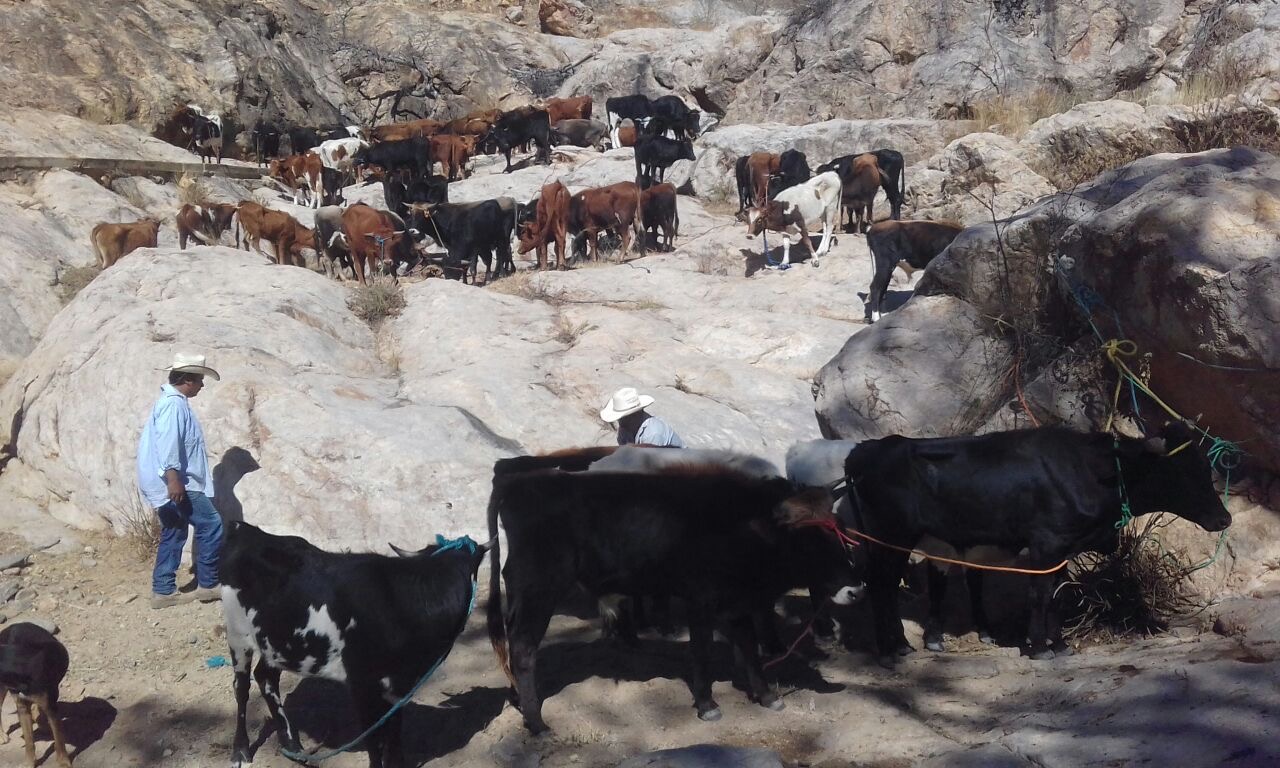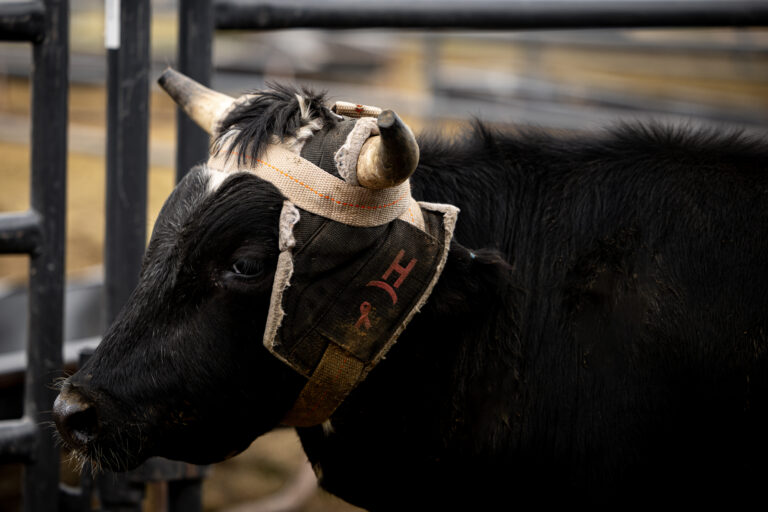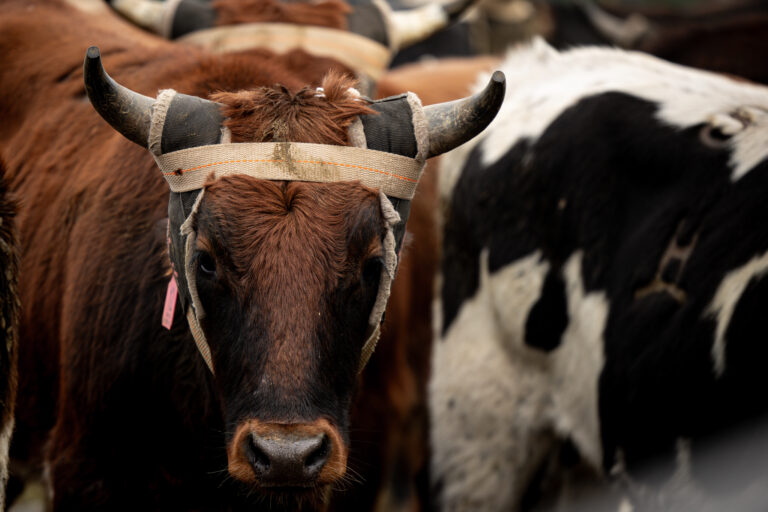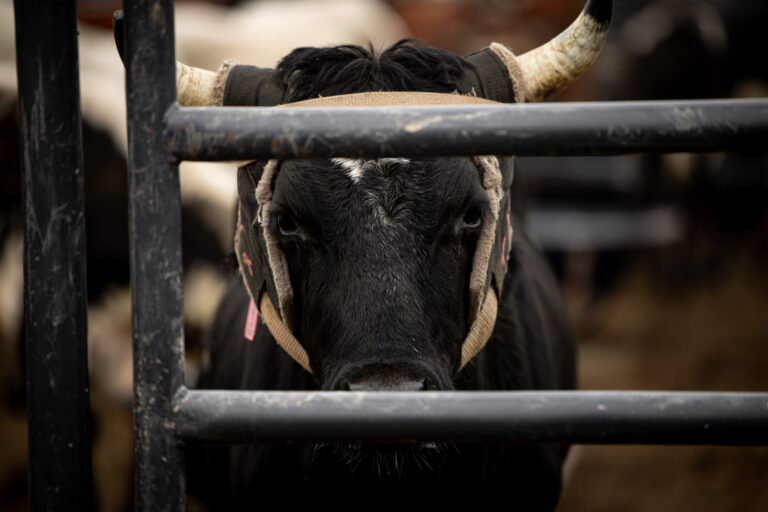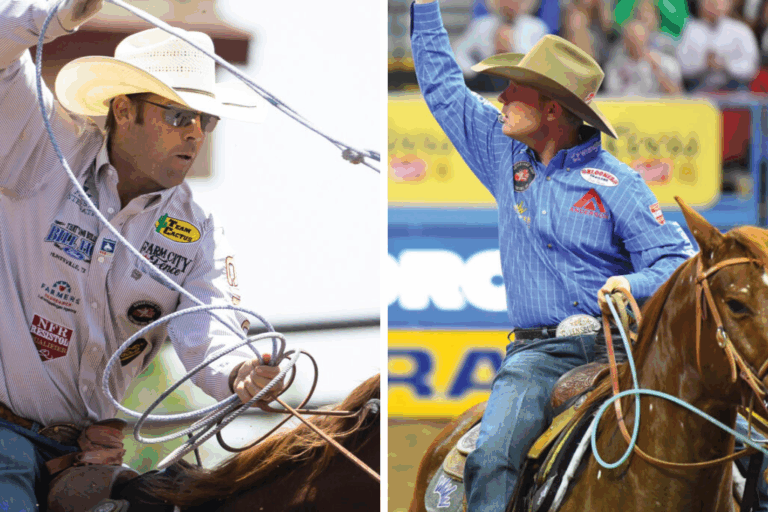Bobby Joe Hill and his crew at Hill Rodeo Cattle cross somewhere between 2,000 and 3,000 Corriente cattle from Mexico each year, and of those, only 60 (45 in three pens plus 15 extras) are making the trip to this year’s Wrangler National Finals Rodeo, and their journey from the cartel-filled hills south of the border is anything but ordinary.
[Related: Round 5-Winning NFR Steer to Be Raffled Off to Benefit Breast Cancer Battle]
This will be Hill’s third year supplying cattle to the NFR. The first year, his contract stipulated that the steers’ minimum weight was 525. Last year, Hill negotiated that weight down to 500, and this year, he estimates they’ll weigh in around 485.
“A 450-lb. Mexican steer is still a pretty good-sized steer, and a 500-lb. steer is big. This year’s steers, at 485, will be better watching,” Hill said. “The great big steers, they look cool, but I want the guys catching. Sometimes, I don’t care how good them guys are, they have trouble catching them. I want 15 out of 15 turned. The steers this year don’t have the big, fancy horns like in the past. They just have good horns.”
[Related: Steer-comics]
[Read more: Border Crossing Businessman Phil Stadtler]
[Read more: How Rope-Out Steers Feed the Hungry]
Matt Sherwood, the PRCA’s team roping director and a two-time world champ who will head at this year’s Finals for Hunter Koch, said he trusts Hill to put together a good set.
“I’ve left it up to him,” Sherwood said. “I know they’ll be big with good horns, and I’ve gotten a lot of feedback from the guys who broke them in that said they’ll be really good.”
Sherwood trusts Hill because he’s got the connections and know how to navigate the complex Mexican cattle trade, learning from one of the original cattlemen who crossed Corriente steers as team roping exploded—the late Fred Lucero.
From the Backyards of Mexican Families
Hill has buyers who can head into Mexico’s rural regions, finding the cattle with good horn base, one steer at a time, staked out in backyards. Families in Mexico will raise a few Corriente bulls, keeping them tied with a cotton rope or bailing twine or whatever they can find. This year, one even crossed the border and showed up at Hill’s wearing a halter.
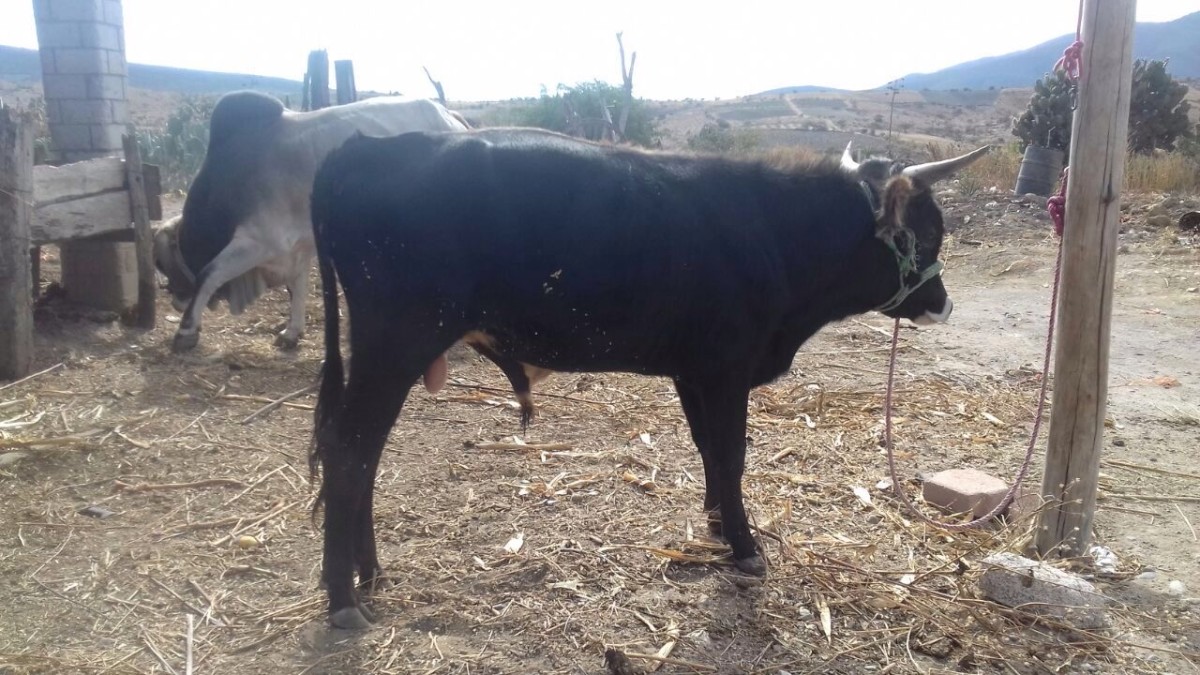
“They have to start tying them up when they’re really little,” Hill explained. “They’re just so gentle it’s crazy. We rope a lot of walking fresh cattle at the trippings, and one or two of them, out of 60 or so, if they use a neck rope, they won’t pull the neck rope. They’ll come out of the chute and will feel the pressure so they’ll stop. Once you get them going through they’re fine, but they’re basically halter-broke steers who give to pressure, which ultimately is what makes them better. I’ve really had them come to me wearing a halter before.”
Sellers will show up at a cattle buyer’s lot with a truck-bed full of cattle, sometimes sorting one roper off from a group of yearlings to leave for the buyer. The Corrientes, who’ve spent their lives with a rope around their horns, will usually lead down a ramp and into a pen at the buyer’s lot.
“One of my buyers has four or five buyers set up,” Hill said. “They all buy from the people in the mountains. They bring them down, sell them to these little sale barns sort of. He keeps in touch and once they get 140 steers or so, he’ll go down and pick them up.”
Into the Mountains
When a cattle buyer gets enough steers put together to make a truck load, he takes them to more rugged country to continue to grow.
“I have a guy who keeps about 800 head turned out, and each month he goes and gathers a load that looks ready to go. Some may stay there a month, others aren’t ready for six months. They’re waiting until their horns and bodies are big enough to rope, and then they head to the border.”
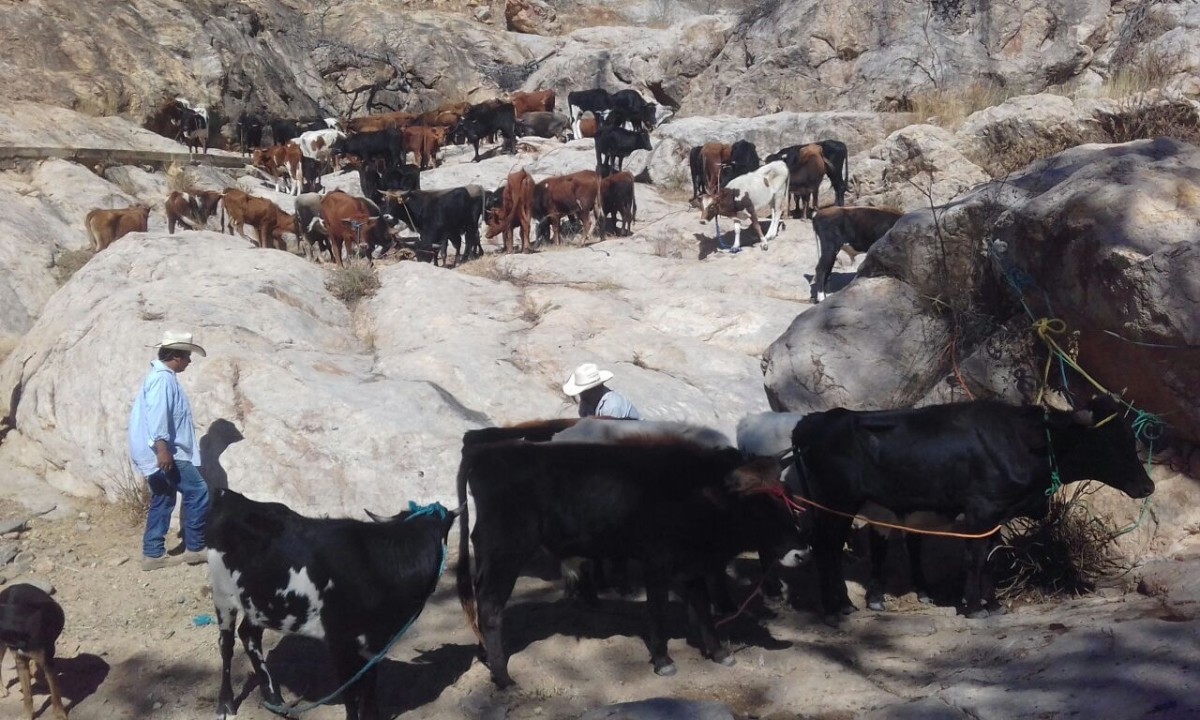
Heading to the Border
The cattle come out of the mountains and head to a lot at each buyer’s location, and then Hill’s connection picks them up and keeps them for 22 days while they go through the paperwork process, getting TB tested and castrated, too.
“I started gathering the NFR steers as far back as January the whole way to September,” Hill said. “There’s always three or four or five junkers on the load they try to push over on you. They get mad when you cut the price on them and say they gave the same for every steer, and that’s where they made a mistake.”
At Hill Rodeo Cattle in Mexia, Texas
Hill supplies cattle to 180 events annually, including 90 PRCA rodeos, so he sorts through the steers in each load to find cattle to fit each event.
“The other day I crossed 99 steers with one guy, and I kept 19 good steers for myself, and in there, there was one NFR-type steer. I’m a steer freak. If they’re old-school, good-looking steers, I put them back for myself. It might be five, 10 or 15 at a time. I need 1,000 for myself throughout the rodeo year anyway.”
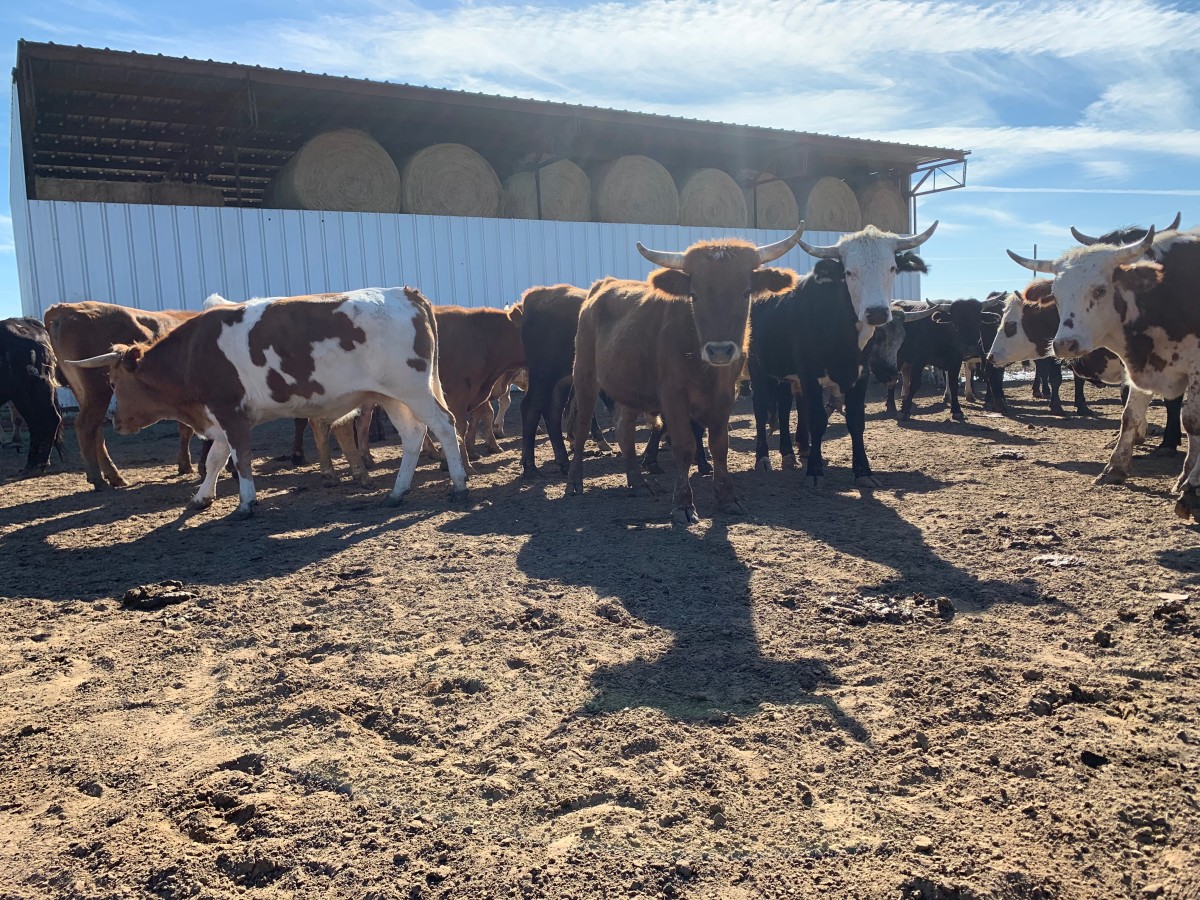
There’s no color scheme for steers that make the cut—in fact, to Hill, color matters very little.
“That’s what tickles me is somebody will call and want 25 practice steers. They’ll say, ‘Can I get all black ones?’ I ask why? And they say, ‘So they’re matched and I know they’re all good.’ I’ve never been a color person as far as steers go. A good steer is a good steer. I’ll get a lot of solid colors from the South, but I’ll get a lot of paints, too. This year’s NFR steers will be pretty mixed as far as color goes.”
Hill kept the steers on a mix-feed diet from Livestock Nutrition Center in Saginaw, Texas, and good grass hay. In early October, when he hauled them to Kaleb Driggers’ Stephenville, Texas arena for some of the top 15 to break in. They ran them through twice the first day and twice the second day.
[Learn more: Breaking in Fresh Steers with Luke Brown]
“I think Driggers chased them down a few times, and we just roped them,” three-time World Champion Clay Tryan said. “If a header missed, we sorted him off and roped them again. I think we did a good job. They looked great. These are the best looking ones. They’re as good of a set as I’ve seen. If they stay the same size, they’ll be as good as they’ve been.”
“I showed up the second day,” three-time NFR heeler Chase Tryan added. “They were going at them, just roping them, and they sure seemed good.”
In Las Vegas
Hill and his crew will get to Las Vegas the Friday before the Finals—November 29. They’ll be in pens at the Thomas & Mack, and the NFR teams will run them through Tuesday, December 3, twice more. There will be three pens of 15 steers with five extras in each pen, with the first pen (Rounds 1, 4, 7 and 10) being the strongest, the second pen (Rounds 2, 5 and 8) filled with medium steers and the third pen being the most user-friendly (Rounds 3, 6 and 9).
“The header heads them and follows them out,” Cole Davison, who will heel at his second-consecutive NFR for Tyler Wade, said. “Then we rope them behind the barrier once. We all run four or five steers, and the headers each get to run one behind the barrier. After we rope them through, we sort them into the three pens. And the reason for the first pen being so strong is that we run them four times.”
This year, Hill will raffle off the Round 5-winning steer to benefit a friend’s fight with breast cancer. And after the Finals, the steers will go into Hill’s rotation for the winter rodeos, starting with the Fort Worth Stock Show and Rodeo. TRJ




